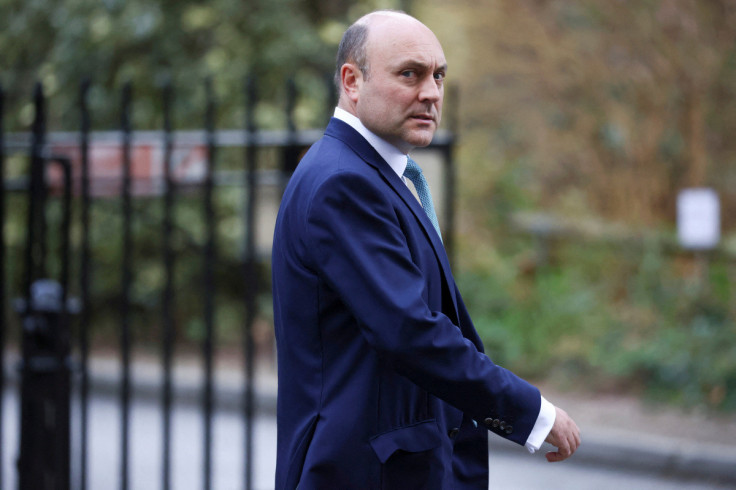UK Treasury Minister Andrew Griffith Raises Hopes of Pre-Election Tax Cuts Next Year
Treasury minister Andrew Griffith ruled out tax cuts in the "very short term" but raised hopes they may happen in 2024.

In a bold stance against mounting criticism, the UK Treasury Minister has staunchly defended the government's tax plans, even as the nation faces the largest tax rise recorded in history.
This move comes amidst perplexity and concerns from various sectors of society, including businesses and the public. However, the minister remains confident in the government's decision and assures that the tax plans are both necessary and fair.
Under the proposed tax plans, the government aims to generate additional revenue to support crucial public services and address the economic challenges stemming from the pandemic. The Treasury Minister argues that the tax rise is an imperative measure to ensure financial stability and sustainable growth in the long run.
One of the primary objectives of this tax hike is to tackle tax evasion, a longstanding issue that has plagued the country's economy. The government firmly believes that by implementing progressive tax policies, wealth inequality can be effectively addressed, and the burden can be fairly distributed among all segments of society.
While the government's commitment to balance the scales seems commendable, many businesses and individuals are concerned about the potential consequences of this tax rise. The burden of increased taxes on businesses could hinder their growth and profitability, potentially leading to job losses and reduced investment.
Moreover, individuals fear that the rise in taxes could impact their disposable income, affecting their ability to meet daily expenses and contribute to economic growth through consumption. These concerns have fueled the perplexity surrounding the government's tax plans.
In response to these widespread concerns, the Treasury Minister has emphasised the government's commitment to striking a fair balance. The minister argues that while tax rises may pose short-term challenges, they are crucial for ensuring the sustainability of public services and a resilient economy in the long term.
The government plans to implement tax relief measures for businesses that face the most significant impact, aiming to mitigate any adverse effects and support their recovery. Additionally, the minister assures that the government will closely monitor the situation and make necessary adjustments as required to ensure fairness and minimise the burden on individuals.
As the government defends its tax plans, public perception remains divided. Some support the government's measures, believing it is a necessary sacrifice to ensure a robust economy and improved public services. Others, however, remain sceptical, questioning the effectiveness of such tax rises and expressing concerns about their individual financial well-being.
The implications of these tax plans are yet to be fully understood. It is imperative for the government to effectively communicate its intentions and transparently address concerns to maintain public trust and prevent further perplexity within society.
In the face of the largest tax rise on record, the UK Treasury Minister steadfastly defends the government's tax plans. While the burden on businesses and individuals raises concerns, the government argues that these measures are necessary to bolster the economy, tackle tax evasion and address wealth inequality.
Striving to strike a fair balance, the government promises relief measures for heavily impacted businesses and closely monitors the situation. The public remains divided on the issue, and the British government must work towards fostering understanding and trust to ensure the success and acceptance of these tax plans.






